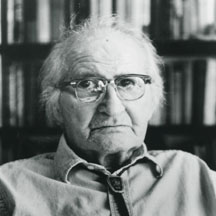A Quote by Philip Seymour Hoffman
Bob Glaudini, the writer, he's a wonderfully talented man and all his plays and his screenplays, they all have sense of something bigger, even though you're looking at something very simple.
Related Quotes
All the stories of the Bible that I know came to me first from my grandfather's lips... He would see stories in everything. He told stories very easily and very generously, so I loved him for that. He was a simple man, a Victorian; he was born in 1890-something. He saw no reason and had never seen any reason to question his Christian faith. His faith was strong and simple and that's it. And I, like his other grandchildren and the children in his parish, sheltered underneath it.
It is obvious that Paul did not regard prayer as supplemental, but as fundamental-not something to be added to his work but the very matrix out of which his work was born. He was a man of action because he was a man of prayer. It was probably his prayer even more than his preaching that produced the kind of leaders we meet in his letters.
Detach the writer from the milieu where he has experienced his greatest sense of belonging, and you have created a discontinuity within his personality, a short circuit in his identity. The result is his originality, his creativity comes to an end. He becomes the one-book novelist or the one-trilogy writer.
The man who is bigger than his job keeps cool. He does not lose his head, he refuses to become rattled, to fly off in a temper. The man who would control others must be able to control himself. There is something admirable, something inspiring, something soul-stirring about a man who displays coolness and courage under extremely trying circumstances. A good temper is not only a business asset. It is the secret of health. The longer you live, the more you will learn that a disordered temper breeds a disordered body.
I'd once been fascinated by his legend - all the stories I'd heard before I met him. Now I can feel that same sense of fascination returning. I picture his face, so beautiful even after pain and torture and grief, his blue eyes bright and sincere. I'm ashamed to admit that I enjoyed my brief time with him in his prison cell. His voice can make me forget about all the details running through my mind, bringing with it emotions of desire, or fear instead, sometimes even anger, but always triggering something. Something that wasn't there before.
In the greatest fiction, the writer's moral sense coincides with his dramatic sense, and I see no way for it to do this unless his moral judgement is part of the very act of seeing, and he is free to use it. I have heard it said that belief in Christian dogma is a hindrance to the writer, but I myself have found nothing further from the truth. Actually, it frees the storyteller to observe. It is not a set of rules which fixes what he sees in the world. It affects his writing primarily by guaranteeing his respect for mystery.
The idea of beauty which man creates for himself imprints itself on his whole attire, crumples or stiffens his dress, rounds off or squares his gesture, and in the long run even ends by subtly penetrating the very features of his face. Man ends by looking like his ideal self. These engravings can be translated either into beauty or ugliness; in one direction, they become caricatures, in the other, antique statues.




































